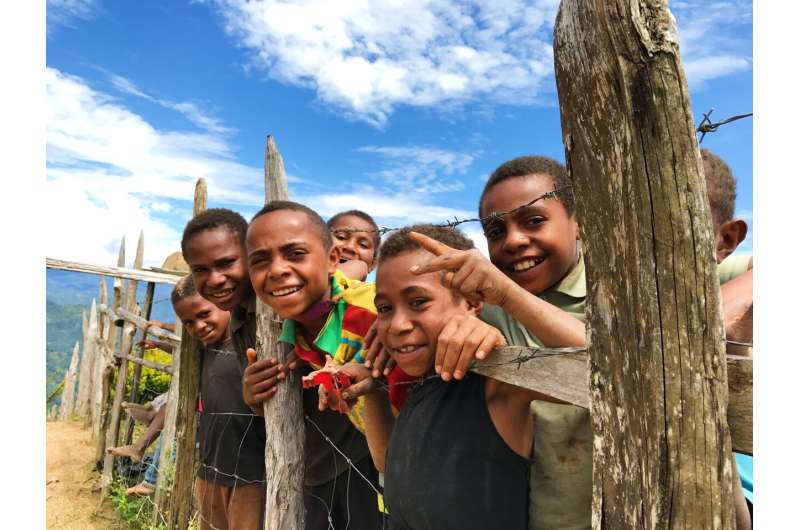Immune system of modern Papuans shaped by DNA from ancient Denisovans

Modern Papuans' immune system likely evolved with a little help from the Denisovans, a mysterious human ancestor who interbred with ancient humans, according to a new study led by Irene Gallego Romero of the University of Melbourne, Australia, published December 8, 2022, in the open access journal PLOS Genetics.
Papuans, the indigenous peoples of New Guinea Island, owe up to 5% of their genome to Denisovans, an extinct group closely related to Neanderthals who are known only by their DNA and sparse remains in Siberia and Tibet. To better understand the significance of this genetic contribution, researchers searched the genomes of 56 Papuan individuals to see if they carried Denisovan or Neanderthal DNA sequences, and then predicted how those sequences might affect the functioning of different types of cells.
Based on the location of the non-human sequences, the team found that in Papuans, Denisovan DNA—but not Neanderthal DNA—appears to strongly and consistently affect immune cells and functions. Further testing in cell cultures confirmed that Denisovan DNA sequences successfully regulated nearby genes, turning their expression up or down in ways that could affect how people respond to infections.
The new study suggests that Denisovan DNA sequences altered the immune response in early modern humans living in New Guinea and nearby islands, potentially helping them adapt to their local environment. The researchers conclude that further exploring how DNA from extinct human ancestors affects gene expression may be the key to understanding the consequences of interbreeding between ancient humans and other groups.
The results also support the idea that archaic DNA has had a broad impact in shaping the genetic diversity and evolution of modern humans, and has likely affected multiple characteristics in people who inherited Denisovan and Neanderthal DNA.
Dr. Davide Vespasiani, first author, adds, "We show that not only Neanderthal, but also Denisovan DNA is very likely to contribute to gene expression in human populations. Further validations will reveal whether these effects are mostly cell type specific or consistent across cells."
Dr. Irene Gallego Romero, senior author, concludes, "Some of the Denisovan DNA that has persisted in Papuan individuals until today plays a role in regulating genes involved in the immune system. Our study is the first to comprehensively shed light on the functional legacy of Denisovan DNA in the genomes of present-day humans."
More information: Denisovan introgression has shaped the immune system of present-day Papuans, PLoS ONE (2022). DOI: 10.1371/journal.pgen.1010470





















